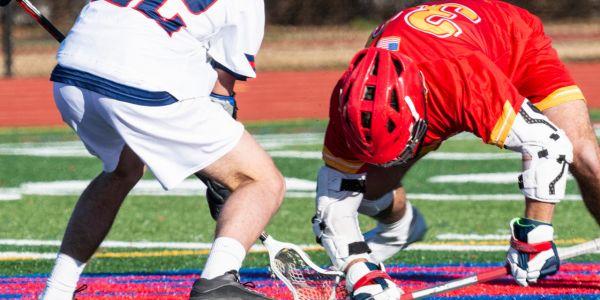
Have You Ever Had a Team Conflict?
Team conflict can affect how you feel about your team, how much you enjoy your sport, and how intensely you pursue your goals.
Not only does conflict affect you, but it can also create tension with your teammates, coaches, family, and friends outside of sport.
Can you relate to the following scenario? You and your coach have a blowout at a competition. You are so angry with him that you don’t even want to attend practices. You feel he is being unfair and harsh to you.
When you go to practice, you try to avoid unnecessary contact with him. You pull back on your intensity in practice and just don’t care much about the season anymore. The conflict keeps festering to the point your teammates are picking sides. Now, the majority of your team is affected by the situation.
When considering this scenario, would you really want to give up accomplishing your goals, the team’s objectives, and your emotional well-being? Nothing good comes from allowing team conflict to go unresolved.
Philadelphia Eagles cornerback Darius Slay and defensive consultant Matt Patricia had a contentious relationship when they were with the Detroit Lions in 2018.
Slay and former head coach Patricia had a significant falling out during the season. The relationship deteriorated so much that Slay requested a trade and was dealt to the Eagles.
After the Eagles hired Patricia, Slay knew they would need to resolve their issues for the team and himself to be their best on the field.
SLAY: “We have been communicating, and we are just trying to win. That’s what it’s all about. We talked about what was going on back then, but I’m always here to get better. He said the same thing, saying he wanted to get better and learn different ways to coach and create a culture because he only knows one culture, so I understand where he came from. We talked man and man. I’m here to win, and he’s here to win, so we are helping each other.”
Resolving conflict as it arises is always the best option rather than allowing it to percolate below the surface and intensify. Resolving conflict will clear your mind and let you be your best for yourself and your teammates.
Steps to consider when dealing with conflict:
1. Stay focused on your personal and team goals. Don’t let anyone or anything detract from focusing on and working towards your objective. Remind yourself that your goals are more important than the conflict.
Then, commit to attending every practice with a positive attitude, continue to work hard, and be a team player. Keep the bigger picture in mind and think about your long-term goals.
2. Communicate respectfully. Your first step should be to talk through the conflict with the other person. It is essential to listen and maintain a calm tone of voice. Make sure to air out your differences in private and keep your teammates from having to choose sides.
3. Channel your energy into action. You can use conflict to motivate yourself to be an even better athlete. While you can’t control another person’s thoughts, feelings, and actions, you can control how you respond.
4. Rely on a healthy support system. First and foremost, your mental health should always be your primary concern. Use the resources available to you to work through your feelings. Learning and developing conflict-resolution skills can help you handle future conflicts.
Conflict within a team can be challenging. However, when dealing with conflict, think of what’s at stake: your mental health, goals, and the team’s objectives.
Resolving conflict helps you grow as a person and an athlete and enjoy your sport more.
Related Sports Psychology Articles
- How to Deal With Team Drama
- How Team Culture Impacts Team Success
- How Elite Athletes Move on From the Past
*Subscribe to The Sports Psychology Podcast on iTunes
*Subscribe to The Sports Psychology Podcast on Spotify
Download a free sports psychology report to improve your mental game!
Learn more about our one-on-one mental game coaching.
The Composed Athlete

“The Composed Athlete” is presented on 80-minute Audio Programs with a 70-page step-by-step workbook that guides you through the program each day. It’s a complete system for conditioning your mind to have maximum composure in competition.
“The Composed Athlete” was developed for any level coach, parent, or junior to professional athlete who wants to improve performance and gain a competitive edge. It does not matter if you are a fledgling junior athlete; or a seasoned professional, plagued with distractions; or you just wanting to learn how to improve your composure…
